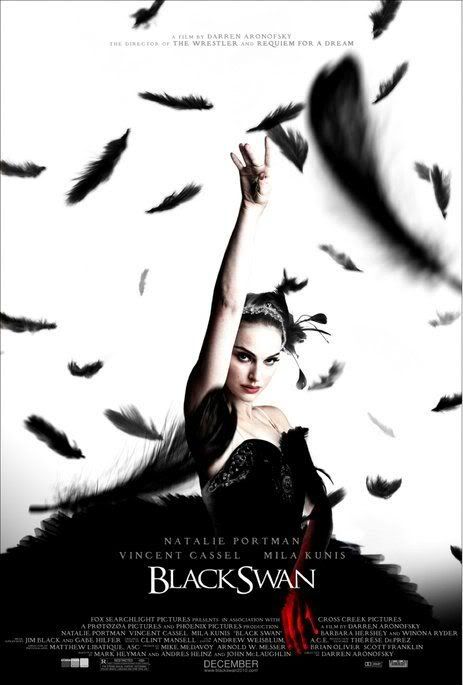
I'm not director Noah Baumbach's greatest fan. Let's just get that out of the way right up front. I am, however, a fairly strong supporter of Ben Stiller's dramatic work. His breakout dramatic performance in David Veloz's Permanent Midnight (1998) was a revelation and I had hoped it would mark the beginning of something great for Stiller. Well, it didn't exactly do that. While he did attempt more drama, in Neil LeBute's Friends and Neighbors (also 1998) and Wes Anderson's The Royal Tenenbaums (2001), he has mostly stuck to the broad comedies that most associate with him. So I was excited and dismayed when I heard he was collaborating with Baumbach; excited that he would be doing something other then being a Focker and dismayed that it might be wasted on a director I feel is, at best, decent.
I am relieved to report that Greenberg is a good film and that it's Stiller's best work since Permanent Midnight. He plays a misanthrope in his early forties who recently got out of a psychiatric institute. He lives in New York but has left to crash at his brother's in Los Angeles (where they grew up) while he and his family go on a vacation. He starts a relationship with the family's assistant, Florence (Greta Gerwig). Actually that's a bit of an overstatement. They meet, he calls her out of the blue and goes over to her house with the intention of going out to a bar. They have an awkward conversation. He asks if she has anything to drink and says the bars will be filled with the "tunnel crowd" anyway, or at least L.A.'s version of the tunnel crowd. More awkward conversation. An awkward kiss. A little awkward cunnilingus. And there you have it, the beginnings of an extremely awkward relationship.
These are damaged people. We don't actually see the damage or even get to hear much about it (she just got out of a long relationship and he lives with the guilt of breaking up his college band right at the moment when they were about to get a record deal), but we see the way they act and interact and it's not a hard determination. He's worse off then her. Though he's made a successful career out being a carpenter he can't get over the guilt he feels for letting his friends down. Of course this isn't what he tells himself or the people in his life, but his actions betray. The first person he contacts in L.A. is Ivan (Rhys Ifans), one of those former band mates who has now found himself living "a life he never imagined." Roger attempts to renew the friendship as if the past doesn't exist and Ivan, very amiable, goes along despite the fact that his personal life is in shambles as well (he's going through a trial separation). The more Roger tries to mask his regret the with his misanthropy, the more transparent he becomes, until everyone (other band members and an old flame also live in L.A.) is talking about the past and wondering what could have been.
With his past friendships either worthless (he also has an old flame who rejects him played by Jennifer Jason Leigh), Roger turns more and more to Florence, the one person who he knows in L.A. who doesn't share his past. He is attracted to her but there time together is more about him not being with the other people he knows then really caring for her. Why Florence would have any interested in this guy is beyond me. From the beginning he has pretty much treated her like a servant, which is after all the function she serves for the family. Not that she's the greatest catch in the world. Beside having just had a bad break-up Florence is not the worlds most desirable person; she's meek, flighty, naive, and kind of a bore. Some might think her sweet but I was mostly annoyed with her. Which is not to say that it's a bad performance. Gerwig (who I'd never seen before) hold her own with Stiller, who almost all her scenes are with.
Baumbach does a nice job of balancing the two main relationships in the film; Roger and Florence and Roger and Ivan. As the older relationship falters the new one expands until finally, on a single night, Roger and Ivan "break up" and Roger pours his heart out to Florence (albeit in a very long voice mail). It seems it may be time, finally, for Roger to let the past go and move on to something new. The film is wise enough not to give us a happy ending but allow it to remain ambiguous as to the future of this rather strange couple.
While I'm still not sold on Baumbach, I think this is his most mature and accomplished piece. His previous film, Margot at the Wedding, was an awful slog of a movie that attempted to hard to simulate the aesthetic of the French New Wave. Greenberg dispenses with that aesthetic and replaces it with one more akin 1970s American filmmaking; I was reminded on more then one occasion of Bob Rafelson's Five Easy Pieces. Stylistically it felt much more appropriate to the types of stories Baumbach seems to gravitate towards and for once it left me wondering what he might do next. (As it turns out that will be an adaptation of The Emperor's Children by Clair Mussud. The story of overprivileged youths whose lives and attitudes are shaken by the events of 9/11). If he's able to incorporate his influences in an organic way, as he's done in Greenberg, there might be some hope for him.
